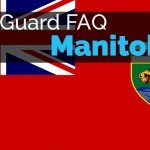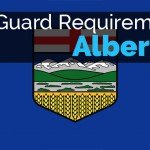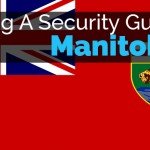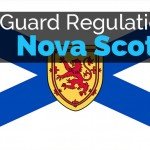Rules and Regulations for Security Guards in Ontario

In addition to the PSISA, there are several regulations which govern security guards. Many of these regulations apply only to employers. However, individual licensees should be familiar with the regulations, particularly those that affect them directly. Here are some of the regulations that affect a security guard in Ontario.
Security Guard Code of Conduct
This regulation defines what kind of behavior is appropriate or inappropriate for security guards to display while they are working. Security guards will find that respecting the Code of Conduct is, in most cases, a matter of common sense – security guards are expected to treat members of the public in a respectful and professional manner. For instance, security guards must:
- Act with honesty and integrity
- Comply with all federal, provincial and municipal laws
- Treat all persons equally (without discrimination)
- Avoid using profanity or abusive language
- Avoid using excessive force
- Not be under the influence of alcohol or drugs while on duty.
Security Guard Uniforms
With the exception of bodyguards and loss prevention personnel, all security guards must wear a uniform that complies with the Uniforms Regulation. If a guard works for a licensed security agency, his or her employer is responsible for ensuring that the uniform meets all the requirements. Please note, security guards must also be familiar with the regulation, as it is their responsibility to wear the proper uniform on a daily basis. Some key points to look out for:
- The term “SECURITY” or “SECURITY GUARD” must be displayed on the uniform in specific places and specific dimensions.
- The uniform must include an identification tag, which shows the licensee’s name, or licence number or both.
- A security guard uniform should not bear any traits that resemble a police uniform, such as rank chevrons, a police-style forage cap, or stripes down the side of the trousers.
Eligibility to Hold a Security Guard Licence – Clean Criminal Record
This regulation lists a series of criminal offences which are prescribed under the PSISA. Persons who have been convicted of any of these offences and have not received a pardon are not eligible for a security guard licence, and any application they submit cannot be processed.
Persons who have been convicted of or charged with an offence that does not appear in this regulation may be eligible for a licence. The Private Security and Investigative Services Branch (PSISB) will need to review their file to determine if any restrictions should apply. The applicant may be given an opportunity to be heard in order to discuss their case.










2 comments on Rules and Regulations for Security Guards in Ontario
Brooklyn Martin
Nice one! Thanks for sharing. Professional security guards also should not consider about race, religion, origin, color, language of clients. They should provide equal services to all.
Kelsey
My husband works as a bouncer at a club. He is a kind and gentle man who takes pride in his ability to keep the club and patrons safe. As a security enforcer he is in constant battles with patrons who cause problems at the club. He often resorts to using force to control a situation, which then in turn patrons come back complaining to the club, suing and or charging for assault. If he had more law enforcement capabilities, such as the ability to enforce and lay fines on patrons, I believe it would reduce the incidences of violence and ridiculous assault chargers being laid on innocent security guards just trying to do their jobs.